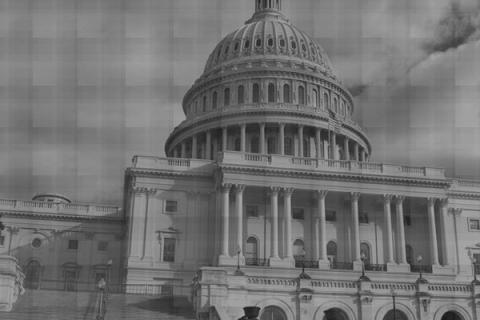The two-party duopoly is a threat to the free exchange of ideas. The establishment parties, in conjunction with a complicit corporate media, often exclude third party and independent voices and perspectives. But, opportunities to challenge this deeply entrenched political system are beginning to increase, especially this year as anti-incumbent sentiment reaches historic levels.
Jake Towne, an independent candidate for Congress in Pennslyvania's CD-15, announced late last week that he has been invited to participate in an October debate organized by the district's largest newspaper, The Morning Call. Towne had previously challenged both the Republican and Democratic candidates to public debates but received no response whatsoever. In an interview for Third Party and Independent Daily, I asked Towne how he broke through the usual Democrat-Republican filter that is so common in the political press. He responded with a description of his campaign's aggressive media strategy:
"The breakthrough was a result of an enormous amount of effort from both myself and campaign volunteers and supporters. Supporters assisted by commenting on media links about the campaign for over a year now. Campaign volunteers and I have been sending consistent press releases and follow-up calls to reporters and other media contacts. I've found the media is reluctant to spend time on independent campaigns as there are very few serious ones that have volunteers on the streets, actively attending community events, and overall just working extremely hard to get the message out. There are no short cuts to hard work, and the volunteers have all my respect for what they have done for this campaign."
The effort clearly paid off. In other states, some organizations have already jump-started the campaign season by holding inclusive debates and candidate forums. In Rhode Island, the state's Latino Civic Fund sponsored a debate last week that included Democratic, Republican, Independent and Moderate Party gubernatorial candidates. Over the weekend, the North Carolina Bar Association hosted a forum for all of the state's candidates for US Senate, including Libertarian Michael Beitler. This was the first time a Libertarian Party candidate for US Senate in the state had ever debated both the Democratic and Republican nominees, though the party has had candidates on the ballot for every such election since 1992, according to Ballot Access News.
In Massachusetts, however, the first gubernatorial debate of the campaign season was a mixed bag. It included Democrat-turned-Independent Tim Cahill but excluded Green-Rainbow candidate Jill Stein. In a statement, Stein charged that the media outlet (WRKO radio) had done a disservice to voters:
"As a result of my exclusion, WRKO listeners were left with the impression that there are very limited options for dealing with the major crises we face in terms of employment, funding services, and providing health care and education to our citizens."
The debate was hosted by Democrat Tom Finneran, the disgraced former Speaker of the Massachusetts House of Representatives, who was barred from holding political office in 2007 after pleading guilty to obstruction of justice.
Obviously, for Democrats and Republicans, the question of including or excluding third party and independent candidates in such forums is for the most part, not a matter of political principle, but rather self-serving political calculation. When a given third party or independent candidate is perceived as potentially attracting voters who would otherwise vote Republican, Democrats will often favor inclusion and Republicans will favor exclusion; on the other hand, when a given third party or independent candidate is perceived as potentially attracting voters who would otherwise vote Democrat, Republicans will favor inclusion and Democrats will favor exclusion.
Needless to say, both sides will say that they stand on principle whichever position they take. In Virginia, there is an ongoing debate in the state's 5th congressional district over whether conservative independent candidate Jeffrey Clark will be included in debates leading up to the November election. As the Charlottesville Daily Progress reported in an editorial calling for an inclusive debate format:
"State Sen. Robert Hurt, Republican, is currently locked in a debate about a debate: whether he is willing to allow third-party candidate Jeffrey C. Clark to join a session with himself and Democrat Rep. Tom Perriello, the incumbent. Mr. Perriello has agreed to Mr. Clark’s participation. Late last week, Mr. Hurt said that, no, he does not want a three-way debate."
Republican Hurt opposed a three-way debate on the grounds that the Independent Clark is not a "serious candidate." The editorial points out, however, that Clark was serious enough to petition his way onto the ballot.
In reality, it is the exclusionary tactics of Democrats and Republicans in concert with duopolized media which create the illusion that only Democrats and Republicans are "serious" candidates for public office. The longer we pretend that this is the case, the longer those of us who do not identify with either faction of the two-party state will remain without adequate political representation.
And polls show that we are on our way toward becoming the majority.

